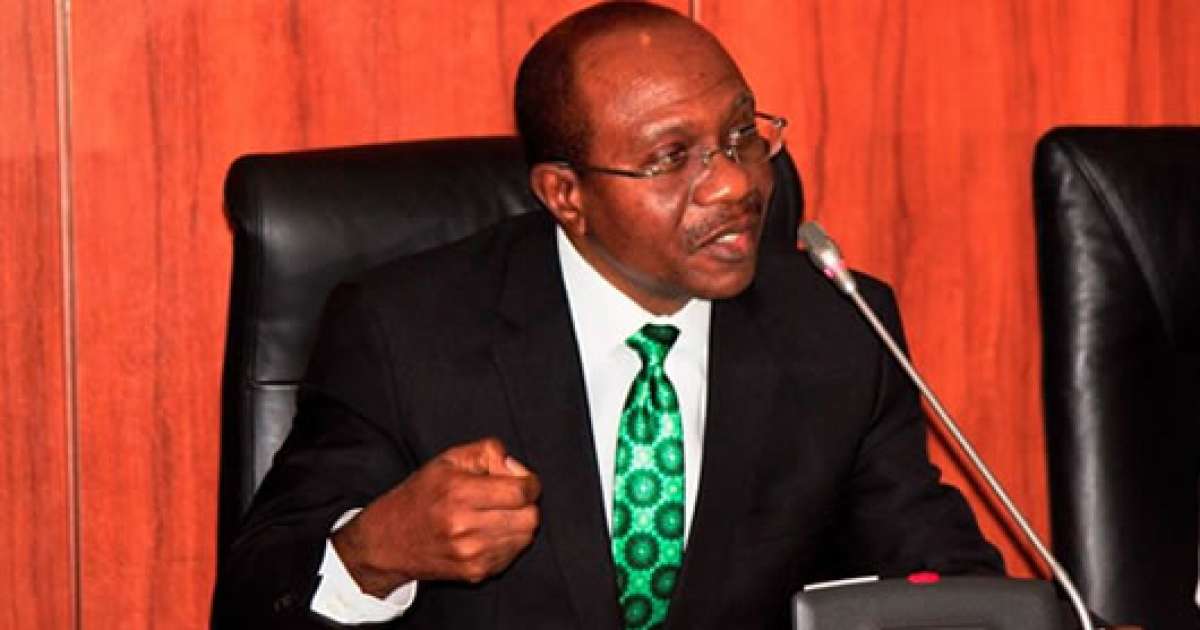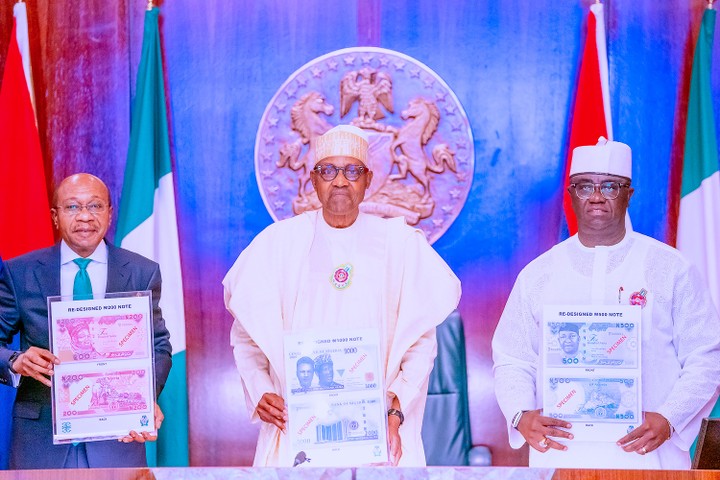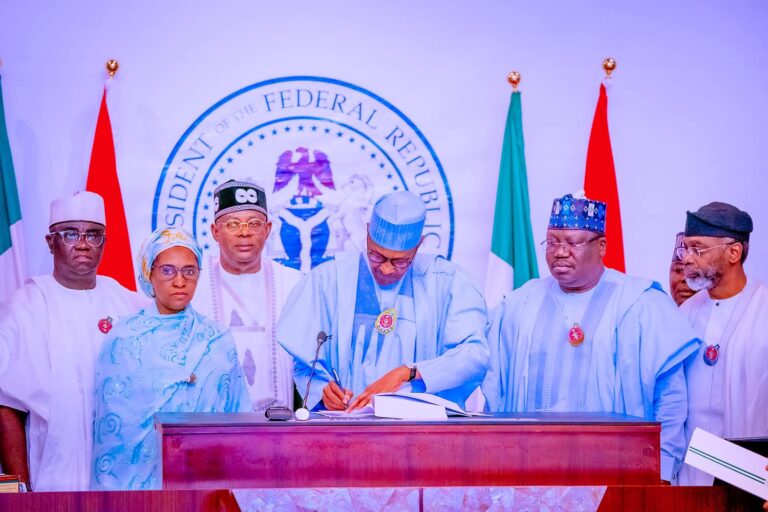The Governor of the Central Bank of Nigeria (CBN), Mr Godwin Emefiele, on Wednesday, disclosed that plans were afoot to unveil new naira notes by December 15 this year, asking depositors to hit the banks to exchange their old currencies for the new ones before the January 31, 2023 expiration date.
Emefiele made the disclosure at a special media briefing in Abuja, saying the move has since secured the approval of President Muhammadu Buhari and other stakeholders. He said move was also to retrieve huge funds outside the banks.
The CBN Governor said that it is worrisome that 85 per cent of the currency in circulation is being hoarded by Nigerians. He further urged Nigerians to proceed to their banks to deposit their Naira notes, adding that the deposit fee would be waived for transactions below N150,000.
Emefiele added that the redesigning of Naira notes would help to curb counterfeit notes, as well as hamper ramson payment to terrorists and kidnappers.
The CBN governor further said that the re-designing of the currency would help to drive cashless economy and it would be complemented by the increased minting of the e-Naira.
What are the implications for MSMEs?
Banks will have more money to lend to MSMEs
Professor of Capital Market and Chairman Chartered Institute of Bankers of Nigeria, Abuja Branch, Prof Uche Uwaleke, said the decision to replace some naira denominations with new ones would be positive for the economy in the medium- to long-term.
He said, “First, although the measure does not amount to demonetisation of big currency notes often carried out by central banks to curb black money and corruption, it will go a long way in ensuring that a lot of naira notes circulating outside the banks are crowded in.
If it leads to large deposits in banks, it means the banks will have more money to lend, which may reduce interest rates. ‘’I also think it may have the effect of reducing speculative attacks on the naira in the parallel market’’.
Huge Logistics Cost on Small Businesses
Chief Executive Officer at Centre for the Promotion of Private Enterprise, Dr Muda Yusuf, said it was difficult to see any compelling value proposition of the currency redesign idea.
Yusuf said the cost of such an action would be outrageous and disproportionate compared to the expected benefits advanced by the CBN.
“At a time when the government is grappling with high fiscal deficit, debt crisis, severe revenue crisis and underfunding of many government projects and programmes, it is most inappropriate to embark on such a profligate exercise. Currency as a percentage of money supply is less than seven percent,” he said.
He noted that the exercise had no monetary policy significance, stressing that “it will come with huge logistics costs, and avoidable dislocations to small businesses, most of whom are in the informal sector.”
He further said there were more urgent issues demanding the attention of the CBN, particularly those around the foreign exchange.
“We have issues with liquidity in the foreign exchange market, the depreciating currency, the recent Moody’s downgrade of Nigeria, soaring inflation and many more. The CBN should save the citizens and the economy the trauma of this currency redesign. It is a distraction we can do without.”
Increased Profits for POS agents and FinTech Sectors, Awareness for E-Naira
MSME Africa believes the recent announcement will lead to a significant increase in online transactions as citizens resort to the use of e-payments, and also an opportunity for CBN to advance the awareness for the use of its Digital Currency – the E-Naira for SMEs.
Accordind to Tajudeen Olayinka, CEO Wyoming Capital and Partners, the CBN is attempting to use the new policy as a strategic weapon for controlling inflation. More people and businesses will resort to the use of electronic money, by directing their customers and counter-parties to pay transactions’ money directly into their bank accounts, to eliminate the risk of receiving counterfeit money.








